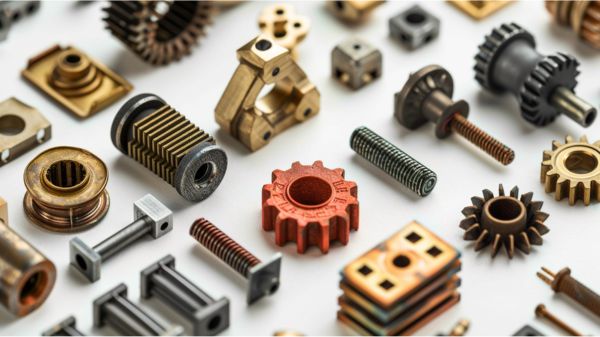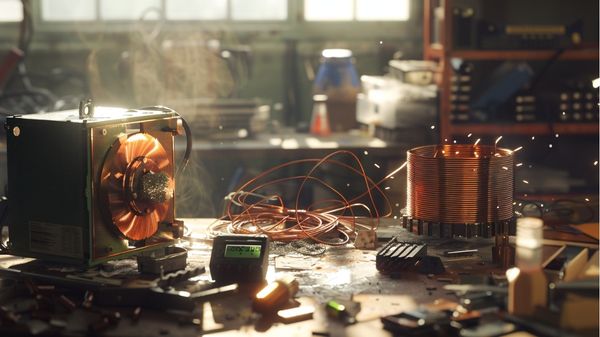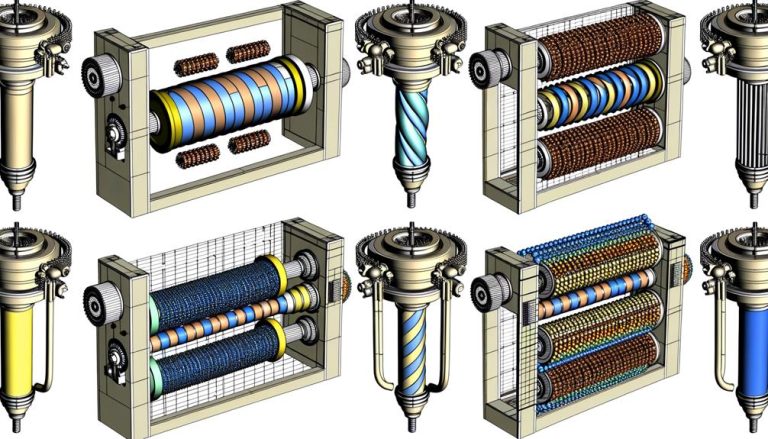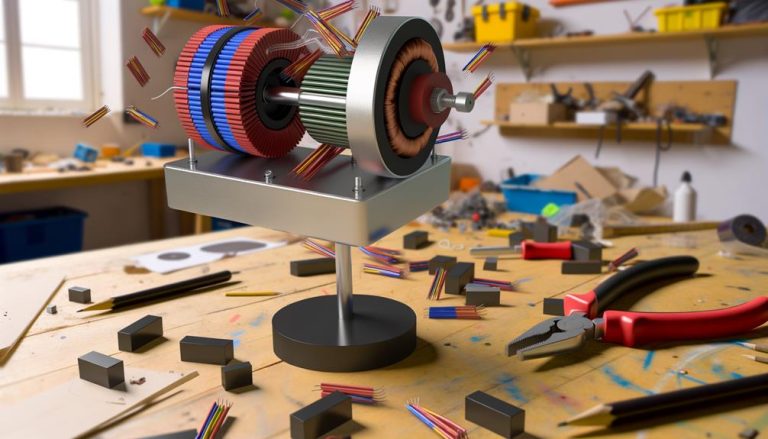Have you ever wondered what goes into choosing the right generator magnets for your project? It’s not as simple as picking any random magnet off the shelf. There are several factors to consider, such as the required magnetic strength, size, shape, and temperature range.
But that’s just the beginning. You also need to understand the different types of magnets available and their unique properties. And let’s not forget about coatings, characteristics, and even environmental factors.
So, if you want to ensure optimal performance for your project, you’ll definitely want to stick around and discover the key steps to choosing the right generator magnets.

Key Takeaways
- Consider factors such as magnetic field strength, size requirements, temperature stability, and cost when choosing generator magnets.
- Evaluate the magnetic strength needed for your project by considering application specifications and pull strength.
- Optimize the size, shape, and configuration of magnets for efficient magnetic field distribution in the generator.
- Select the right magnet material based on specific project needs, such as neodymium for strong magnetic properties or ferrite for cost-effectiveness.
Understanding Generator Magnet Types
To understand generator magnet types, it’s important to distinguish between permanent magnets like neodymium and temporary magnets, as they serve different purposes in various applications. Neodymium magnets, also known as rare earth magnets, are classified as hard magnets due to their strong magnetic properties. These magnets are commonly used in high-performance generators that require powerful magnetic fields.
On the other hand, soft magnets, such as iron or steel, are often used in generator applications due to their excellent magnetic properties and ease of magnetization. Soft magnets allow for efficient energy conversion within the generator.
When selecting generator magnets, it’s crucial to consider factors such as the required magnetic field strength, temperature stability, and coercivity to ensure optimal performance. By understanding the differences between neodymium magnets and soft magnets, you can make an informed decision when choosing generator magnets for your specific project needs.
Factors to Consider When Choosing Generator Magnets
Consider several factors when selecting generator magnets to ensure optimal performance and compatibility with your specific project requirements.
The magnetic field strength is crucial for efficient generator operation, so evaluate the required strength for your project. Size and shape requirements should also be taken into account to ensure proper fit within the generator design.
Additionally, consider the temperature range in which the generator will operate, as some magnet materials may not withstand high temperatures. Environmental conditions should also be considered, as they can affect magnet performance in the generator setup.
Finally, keep cost constraints in mind to select magnets that align with your budget. By considering these factors, you can choose the right generator magnets to power your project effectively.
Evaluating Magnet Strength for Your Project
How do you determine the required magnetic strength for your project? Evaluating magnet strength is crucial to ensure optimal performance. Here are some key points to consider:
- Consider the application’s needs and specifications to determine the required magnetic strength.
- Evaluate the pull strength of the magnet to ensure it provides the necessary force for your project.
- Pay attention to the Gauss or Tesla rating of the magnet, as it indicates the magnetic field strength.
- Choosing the right magnet is essential to meet your project’s demands for optimal performance.
- Seek expert advice to select the magnet strength tailored to your project requirements.
Understanding the magnetic fields and selecting the appropriate magnet strength plays an important role in the success of your project. By following these guidelines, you can ensure that your generator magnets meet the necessary requirements and deliver the performance you desire.
Sizing Generator Magnets for Optimal Performance
To ensure optimal performance, sizing generator magnets requires careful consideration of factors such as power output, magnet configuration, temperature range, cost-effectiveness, and expert advice in magnet technology.
Calculating the required magnetic strength is crucial in determining the optimal magnet size for your generator. This is achieved by considering the power output of the generator and selecting magnets with the appropriate strength measured in gauss.
Additionally, the shape and configuration of the magnets must be taken into account to ensure efficient distribution of the magnetic field, maximizing performance. Evaluating the temperature range in which the generator will operate is also important, as it helps in selecting magnets with suitable temperature coefficients for consistent performance.
Lastly, balancing cost-effectiveness and performance requirements is essential to achieve the best value for your project. Consulting with experts in magnet technology can provide valuable guidance in choosing the right generator magnets tailored to your specific needs and performance goals.
| Factors to Consider | Considerations |
|---|---|
| Power Output | Calculate required magnetic strength in gauss |
| Magnet Configuration | Optimize shape and configuration for efficiency |
| Temperature Range | Select magnets with suitable temperature coefficients |
| Cost-Effectiveness | Balance performance requirements and cost-effectiveness |
| Expert Advice | Consult with magnet technology experts for guidance |
Selecting the Right Magnet Material for Your Generator
When selecting the magnet material for your generator, it’s important to consider the specific requirements of your project to ensure optimal performance and efficiency. Here are some key points to keep in mind:
- Neodymium magnets are known for their strong magnetic properties and high energy density, making them a popular choice for generator applications.
- Samarium Cobalt magnets are preferred for high-temperature generator systems due to their excellent temperature stability.
- Ferrite magnets offer a cost-effective solution for generators, providing good magnetic performance at a lower price point.
- Alnico magnets are suitable for generator systems that require high magnetic strength and stability in varying temperatures.
Consider the specific needs of your generator project to select the most suitable magnet material that will deliver the desired performance and efficiency.
Frequently Asked Questions
What Type of Magnet Is Best for a Generator?
Neodymium magnets offer advantages in generator designs with their high magnetic strength and efficiency. Factors to consider when selecting generator magnets include temperature range and magnetic properties. Magnet material impacts generator efficiency. Explore alternative magnet options for your project.
How Do I Choose a Magnet?
To choose a magnet, consider its strength, material, size, and cost. Determine your needs and find a magnet that fits within your budget while meeting your project requirements.
What Magnet Is Used in a Generator?
The magnet used in a generator is a permanent magnet, such as a neodymium or ferrite magnet. These magnets create a strong magnetic field that interacts with the electromagnet to generate electricity.
How Strong of a Magnet Do I Need?
To determine how strong of a magnet you need, consider factors like required pull strength, distance, and magnetic field strength. Consult experts for optimal magnet selection. Remember, you want a magnet that can attract with the force of a thousand suns.

Conclusion
Choosing the right generator magnets for your project is absolutely crucial. With a wide range of factors to consider, such as magnetic strength, size, shape, and temperature range, it’s vital to carefully evaluate all options.
By ensuring optimal magnet strength, size, and material selection, you can guarantee the success of your project. Don’t underestimate the importance of expert advice, testing, and considering environmental factors in order to achieve the best possible results.




